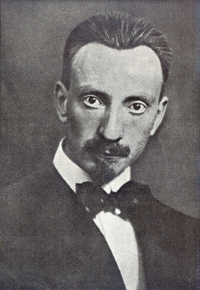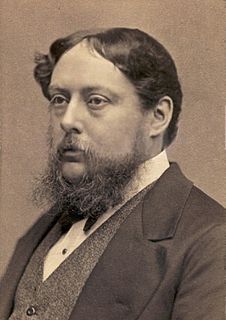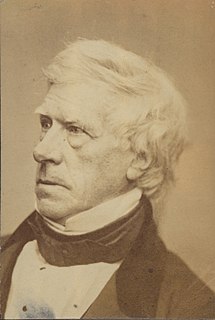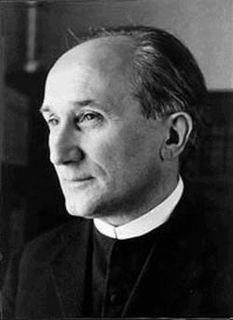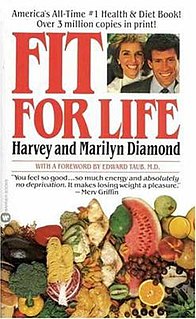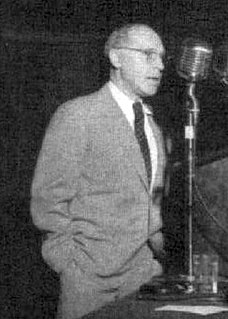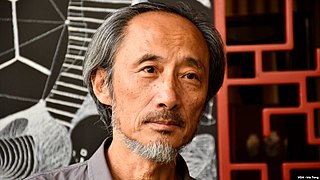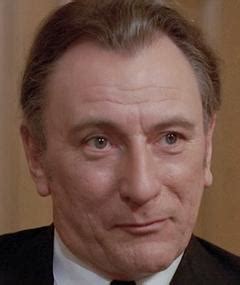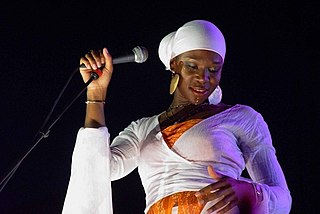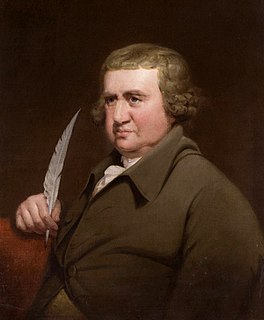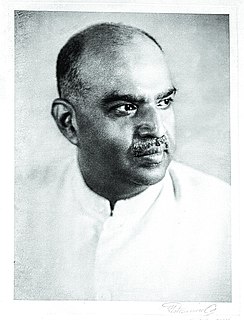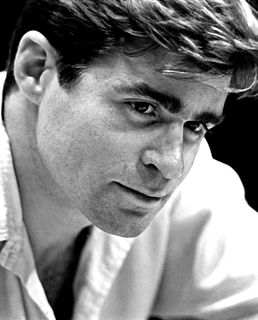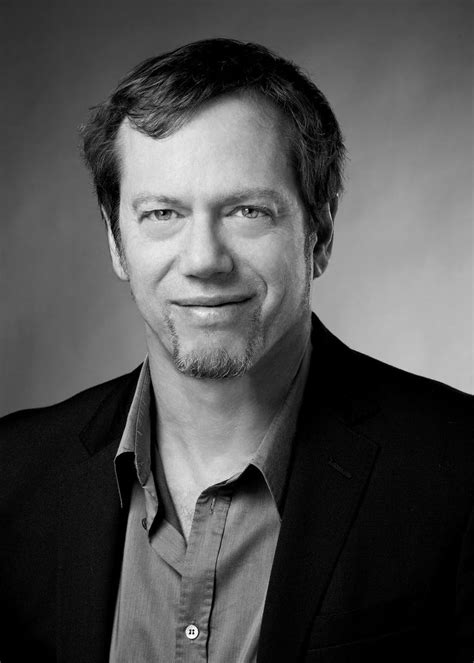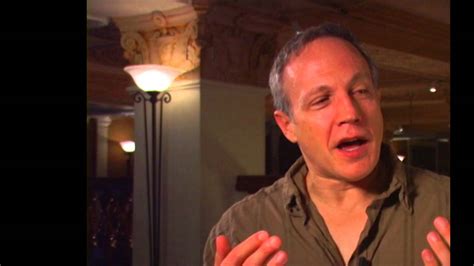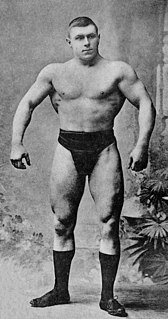Top 403 Organs Quotes & Sayings - Page 7
Explore popular Organs quotes.
Last updated on April 21, 2025.
The devil is perfectly willing that the Church should multiply its organization and its deftly contrived machinery for the conquest of the world for Christ, if it will only give up praying... Satan laughs softly, as he looks at the Church today, and says under his breath: "You can have your Sunday schools, your YMCAs...your grand choirs, and your fine organs, and your brilliant preachers...as long as you do not bring into them the power of Almighty God, sought and obtained by earnest, persistent, believing, mighty prayers."
Beethoven and Wagner for many years wrung our hearts. But now we are sated with them and derive much greater pleasure from ideally combining the noise of streetcars, internal-combustion engines, automobiles, and bust crowds than from rehearsing, for example, the 'Eroica' or the 'Pastorale'...away! les ust be gone, since we shall not much longer succeed in restraining a desire to create a new musical realism by a generous distribution of sonorous blows and slaps, leaping numbly over violins, pianofortes, contrabasses, and groaning organs, Away!
From youth to middle, and often to past middle, age, most men are apt to be too closely engaged in the struggle of life to pay due attention to the strength of the body. They may take daily what they consider a sufficient amount of exercise; but the exercise is not calculated to keep the various limbs and muscles, still less the internal organs, in proper working order. Amid the ordinary concerns of life the man may appear strong, even stalwart. But when occasion arises for some special muscular exercise, or taxing the action of some organ, he finds out his weakness.
Plants, again, inasmuch as they are without locomotion, present no great variety in their heterogeneous pacts. For, when the functions are but few, few also are the organs required to effect them. ... Animals, however, that not only live but perceive, present a great multiformity of pacts, and this diversity is greater in some animals than in others, being most varied in those to whose share has fallen not mere life but life of high degree. Now such an animal is man.
The same Being that fashioned the insect, whose existence is only discerned by a microscope, and gave that invisible speck a system of ducts and other organs to perform its vital functions, created the enormous mass of the planet thirteen hundred times larger than our earth, and launched it in its course round the sun, and the comet, wheeling with a velocity that would carry it round our globe in less than two minutes of time, and yet revolving through so prodigious a space that it takes near six centuries to encircle the sun!
The word is a thing of mystery, so volatile that it vanishes almost on the lip, yet so powerful that it decides fates and determines the meaning of existence. A frail structure shaped by fleeting sound, it yet contains the eternal: truth. Words come from within, rising as sounds fashioned by the organs of a man's body, as expressions of his heart and spirit. He utters them, yet he does not create them, for they already existed independently of him. One word is related to another; together they form the great unity of language, that empire of truth-forms in which a man lives.
My feeling is that a human being or any complex organism has a system of cognitive structures that develop much in the way the physical organs of the body develop. That is, in their fundamental character they are innate; their basic form is determined by the genetic structure of the organism. Of course, they grow under particular environmental conditions, assuming a specific form that admits of some variation. Much of what is distinctive among human beings is a specific manner in which a variety of shared cognitive structures develop.
Tools arm the man. One can well say that man is capable of bringing forth a world; he lacks only the necessary apparatus, the corresponding armature of his sensory tools. The beginning is there. Thus the principle of a warship lies in the idea of the shipbuilder, who is able to incorporate this thought by making himself into a gigantic machine, as it were, through a mass of men and appropriate tools and materials. Thus the idea of a moment often required monstrous organs, monstrous masses of materials, and man is therefore a potential, if not an actual creator.
A man in twenty-four hours converts as much as seven ounces of carbon into carbonic acid; a milch cow will convert seventy ounces, and a horse seventy-nine ounces, solely by the act of respiration. That is, the horse in twenty-four hours burns seventy-nine ounces of charcoal, or carbon, in his organs of respiration to supply his natural warmth in that time ..., not in a free state, but in a state of combination.
It may be safely affirmed that there neither is, nor can be, any essential difference between the language of prose and metrical composition.... They both speak by and to the same organs; the bodies in which both of them are clothed may be said to be of the same substance, their affections are kindred, and almost identical, not necessarily differing even in degree; Poetry sheds no tears "such as Angels weep," but natural and human tears; she can boast of no celestial ichor that distinguishes her vital juices from those of prose; the same human blood circulates through the veins of them both.
God wants a love partner, centering on the place where husband and wife become one through their sexual organs, God wants to appear and meet us...I wish you would center on the absolute sexual organ, unique sexual organ, unchanging sexual organ and eternal sexual organ and use this as your foundation to pursue God...We have to realize that the Kingdom of God on earth and in heaven will begin on this foundation.
You know, these conservative women, somebody really needs to go repossess their ovaries. Really, truly, they have no right to them. They are fabulous, little organs and they have absolutely no right to be estrogen-bearing beings. Okay? Just cut 'em off, let 'em go through the hot flashes, let 'em just sit there and complain about hormone therapy, okay? Just take the ovaries and get it over with. Because they don't deserve to have estrogen. They really don't. It's a privilege.
If you are building a thirty-story building and you use worm-eaten wood for the frame, inferior structural supports, and other fourth-rate, low-grade materials, what kind of finished product do you think you will wind up with? No need to answer. So if you're building a human body and the material that will become your blood, bones, skin, organs-indeed, every cell of your body-is inferior and of poor quality, what kind of body do you think you will wind up with? No need to answer.
The lore of our fathers is a fabric of sentences. In our hands it develops and changes, through more or less arbitrary and deliberate revisions and additions of our own, more or less directly occasioned by the continuing stimulation of our sense organs. It is a pale gray lore, black with fact and white with convention. But I have found no substantial reasons for concluding that there are any quite black threads in it, or any white ones.
All living organisms are but leaves on the same tree of life. The various functions of plants and animals and their specialized organs are manifestations of the same living matter. This adapts itself to different jobs and circumstances, but operates on the same basic principles. Muscle contraction is only one of these adaptations. In principle it would not matter whether we studied nerve, kidney or muscle to understand the basic principles of life. In practice, however, it matters a great deal.
There is no permanent status quo in nature; all is the process of adjustment and readjustment, or else eventual failure. But man is the first being yet evolved on earth which has the power to note this changefulness, and, if he will, to turn it to his own advantage, to work out genetic methods, eugenic ideas, yes, to invent new characteristics, organs, and biological systems that will work out to further the interests, the happiness, the glory of the God-like being whose meager foreshadowings we the present ailing creatures are.
I just did an arc with Warren Ellis - and no one else on the planet could get away with this, because I think this is like harassment? - But Warren felt like there was a depiction of Spider-Woman where it looked like her waist perhaps didn't contain any internal organs. And he suggested very quietly ... 'You should fix that, or else I will come to your house and nail your feet to the floor and set your house on fire.' ... And it totally got fixed!
Physiologically, man in the normal use of technology (or his variously extended body) is perpetually modified by it and in turn finds ever new ways of modifying his technology. Man becomes, as it were, the sex organs of the machine world, as the bee of the plant world, enabling it to fecundate and to evolve ever new forms. The machine world reciprocates man's love by expediting his wishes and desires, namely, in providing him with wealth.
The intelligence displayed by many dumb animals approaches so closely to human intelligence that it is a mystery. The animals see and hear and love and fear and suffer. They use their organs far more faithfully than many human beings use theirs. They manifest sympathy and tenderness toward their companions in suffering. Many animals show an affection for those who have charge of them, far superior to the affection shown by some of the human race. They form attachments for man which are not broken without great suffering to them.
Everything that comes together falls apart. Everything. The chair I’m sitting on. It was built, and so it will fall apart. I’m gonna fall apart, probably before this chair. And you’re gonna fall apart. The cells and organs and systems that make you you—they came together, grew together, and so must fall apart. The Buddha knew one thing science didn’t prove for millennia after his death: Entropy increases. Things fall apart.
Before the counter-culture revolutionary Li Lian was executed in 1971 for criticising the Cultural Revolution, pour policemen pushed her face against the window of a truck, lifted her shirt and cut out her kidneys with a surgical knife,’ Mau Sen said, his face stony and white. ‘I think that removing the organs of convicts while they are still alive is too much. It completely contravenes medical ethics.’ ‘This is a dissection class, not a political meeting,’ Sun Chunlin said.
A long-dead angel who thought to own me,” was his enigmatic answer, the silver in his eyes almost liquid. “I tore out his throat. After that, I ate his liver and his heart. The remaining internal organs weren’t as tasty so I gave them to his other creatures.” Elena’s hand tightened on the handle of the knife, conscious Naasir carried gleaming blades of his own in the sheaths strapped to his arms. “I wouldn’t think a vampire who killed an angel would be permitted to live.” A slow, feral smile. “I didn’t say I killed him.
When a woman is making love with a man, a sense of heat in her brain, which brings forth with it sensual delight, communicates the taste of that delight during the act and summons forth the emission of the man's seed. And when the seed has fallen into its place, that vehement heat descending from her brain draws the seed to itself and holds it, and soon the woman's sexual organs contract and all parts that are ready to open up during the time of menstruation now close, in the same way as a strong man can hold something enclosed in his fist.
The similarities between street drug abuse and psychotropic prescription drug use are disturbing. Both types are toxic. Both can cause psychosis, damage the brain and other organs, and even cause death. And neither type of mind-altering drugs, legal or illegal, treats disease. It's important to recognize that the only significant difference between many prescription psychotropic drugs and street drugs such as "speed" and "downers" is that prescription drugs are legal.
So erst the Sage [Pythagoras] with scientific truth In Grecian temples taught the attentive youth; With ceaseless change how restless atoms pass From life to life, a transmigrating mass; How the same organs, which to-day compose The poisonous henbane, or the fragrant rose, May with to-morrow's sun new forms compile, Frown in the Hero, in the Beauty smile. Whence drew the enlighten'd Sage the moral plan, That man should ever be the friend of man; Should eye with tenderness all living forms, His brother-emmets, and his sister-worms.
What if it is for life's sake that we must die? In truth we are not individuals; and it is because we think ourselves such that death seems unforgivable. We are temporary organs of the race, cells in the body of life; we die and drop away that life may remain young and strong. If we were to live forever, growth would be stifled, and youth would find no room on earth. Death, like style, is the removal of rubbish, the circumcision of the superfluous. In the midst of death life renews itself immortally.
It is astounding to me, and achingly sad, that with eighty thousand people on the waiting list for donated hearts and livers and kidneys, with sixteen a day dying there on that list, that more then half of the people in the position H's family was in will say no, will choose to burn those organs or let them rot. We abide the surgeon's scalpel to save our own lives, out loved ones' lives, but not to save a stranger's life. H has no heart, but heartless is the last thing you'd call her.
Generally speaking, an Indian university must regard itself as one of the living organs of national reconstruction. It must discover the best means of blending together both the spiritual and the material aspects of life. It must equip its alumni irrespective of caste, creed or sex, with individual fitness, not for its own sake, not for merely adorning varied occupations and professions, but in order to teach them how to merge their individuality in the common cause of advancing the progress and prosperity of their motherland and upholding the highest traditions of human civilisation.
So this Zealot comes to my door, all glazed eyes and clean reproductive organs, asking me if I ever think about God. So I tell him I killed God. I tracked God down like a rabid dog, hacked off his legs with a hedge trimmer, raped him with a corncob, and boiled off his corpse in an acid bath. So he pulls an alternating-current taser on me and tells me that only the Official Serbian Church of Tesla can save my polyphase intrinsic electric field, known to non-engineers as "the soul." So I hit him. What would you do?
All good dramas are rife with conflicts, and the conflicts have to be resolved. What I think is so great about a show that takes place in a hospital is that you have so many different people with different needs. Sometimes all those can be in conflict. The drama of Heartland also comes from the group of people waiting, and they are sometimes agonizingly waiting for a new organ for their body in order to survive. So the show is so much about survival, which creates a sense of urgency to get the organs. I think that sense of urgency is probably the most prominent dramatic quality to the show.
It did not seem possible that Wendy Wright had been born out of blood and internal organs like other people. In proximity to her he felt himself to be a squat, oily, sweating, uneducated nurt whose stomach rattled and whose breath wheezed. Near her he became aware of the physical mechanisms which kept him alive; within him machinery, pipes and valves and gas-compressors and fan belts had to chug away at a losing task, a labor ultimately doomed. Seeing her face, he discovered that his own consisted of a garish mask; noticing her body made him feel like a low-class wind-up toy.
Yeah, okay. You're right. I was having dinner with Zombie Carl the other night. You know, steak, rare, and a bottle of vintage type A. He told me all his secrets, but too bad for you I promised him I wouldn't tell. In exchange I asked him to gather his best undead buddies and stalk me through my friend's yard. And oh, yeah, it was totally fine if they wanted to use me as an all-night-dinner buffet, because having organs is SO last year.
And often the worst thing wasn't the victims--they were dead, after all, and beyond any more pain. The worst thing was those who loved them and survived them. Often the walking dead from now on, shell-shocked, hearts ruptured, stumbling through the remainder of their lives without anything left inside of them but blood and organs, impervious to pain, having learned nothing except that the worst things did, in fact, sometimes happen. (Mystic River)
Back in the twentieth century, we thought that robots would have taken over by this time, and, in a way, they have. But robots as a race have proved disappointing. Instead of getting to boss around underlings made of steel and plastic with circuitry and blinking lights and tank treads, like Rosie the maid on The Jetsons, we humans have outfitted ourselves with robotic external organs. Our iPods dictate what we listen to next, gadgets in our cars tell us which way to go, and smartphones finish our sentences for us. We have become our own robots.
We are dealing with the best-educated generation in history. But they've got a brain dressed up with nowhere to go. Science is all metaphor. In the information age, you don't teach philosophy as they did after feudalism. You perform it. If Aristotle were alive today he'd have a talk show. If you don't like what you are doing, you can always pick up your needle and move to another groove. If you take the game of life seriously, if you take your nervous system seriously, if you take your sense organs seriously, if you take the energy process seriously, you must turn on, tune in, and drop out.
Knowledge of Rome must be physical, sweated into the system, worked up into the brain through the thinning shoe-leather. ... When it comes to knowing, the senses are more honest than the intelligence. Nothing is more real than the first wall you lean up against sobbing with exhaustion. Rome no more than beheld (that is, taken in through the eyes only) could still be a masterpiece in cardboard - the eye I suppose being of all the organs the most easily infatuated and then jaded and so tricked. Seeing is pleasure, but not knowledge.
Nature is flexible and resilient. Nature likes redundancy and dispersion. It is approximate and deals in gradients. All boundaries are permeable. Nature nests small systems like molecules within larger systems like cells, which in turn are nested in systems called organs, organisms, ecosystems. We grew from ancient one-celled ancestors. Nature likes mergers: we contain multitudes of other life forms within us. We stand at the crest of four billion years, bacteria molded into wondrous form, burning with a slow fire and about to take the next step.
After having produced aquatic animals of all ranks and having caused extensive variations in them by the different environments provided by the waters, nature led them little by little to the habit of living in the air, first by the water's edge and afterwards on all the dry parts of the globe. These animals have in course of time been profoundly altered by such novel conditions; which so greatly influenced their habits and organs that the regular gradation which they should have exhibited in complexity of organisation is often scarcely recognisable.
Improved perception of our somatic feelings not only gives us greater knowledge of ourselves but also enables greater somatic skill, facility, and range of movement that can afford our sensory organs greater scope in giving us knowledge of the world. Besides augmenting our own possibilities of pleasure , such improved somatic functioning and awareness can give us greater power in performing virtuous acts for the benefit of others, since all action somehow depends on the efficacy of our bodily instrument.
One young woman's tribute describes unwrapping her cadaver's hands and being brought up short by the realization that the nails were painted pink. "The pictures in the anatomy atlas did not show nail polish", she wrote. "Did you choose the color? Did you think that I would see it? I wanted to tell you about the inside of your hands. I want you to know you are always there when I see patients. When I palpate an abdomen, yours are the organs I imagine. When I listen to a heart, I recall holding your heart.
It is very strange, this domination of our intellect by our digestive organs. We cannot work, we cannot think, unless our stomach wills so. It dictates to us our emotions, our passions.... We are but the veriest, sorriest slaves of our stomach. Reach not after morality and righteousness, my friends; watch vigilantly your stomach, and diet it with care and judgment. Then virtue and contentment will come and reign within your heart, unsought by any effort of your own; and you will be a good citizen, a loving husband, and a tender father—a noble, pious man.
The frequent employment of one's will power masters all organs of movement and trains them to perform feats which otherwise would have been difficult,painful and even impossible. The man becomes independent and self-reliant; he will never be a coward,and, when real danger threatens,he is the one who is looked up to by others. The knowledge of one's strength entails a real mastery over oneself; it breeds energy and courage,helps one over the most difficult tasks of life, and procures contentment and true enjoyment of living.

